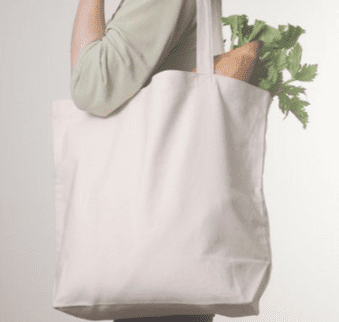In late June, Gov. Gavin Newsom allowed his 60-day executive order to pause California’s single-use plastic bag ban to expire. Municipalities throughout the Bay Area followed suit, with San Francisco and other counties following suit soon after.
For an unspecified reason, the County of Marin let nearly a month pass before announcing Its own reinstatement on the plastic bag ban, which the Mill Valley City Council passed in 2013. Marin and San Mateo counties were the last to rescind the reusable bag ban.
In announcing the move Tuesday, Marin County Public Health Officer Matt Willis urged shoppers to minimize their reusable bags’ contact with workers, fellow patrons and shared surfaces by keeping the reusable bags in their cart and bagging their own groceries.
Now, with the return of the plastic bag ban, grocers and other businesses have a couple options. They can choose to allow for the use of reusable bags. Stores may ask customers who bring in reusable bags to bag their own groceries, per Cal/OSHA guidelines.
Others may continue to offer recycled paper bags or thicker plastic bags, which are exempt from the state’s ban because they’re considered reusable. However, they are once again required by law to start charging 10 cents for each of those bags.
“With the temporary suspension now expired, California is supporting responsible actions to sustainably protect both our health and our environment,” said Erin Curtis, a spokeswoman for the California Environmental Protection Agency. “Before the single-use plastic bags ban, billions of bags polluted California’s waterways, streets and coastlines.”
Miriam Gordon, policy director for Upstream Solutions, an environmental advocacy group, told the San Francisco Chronicle that the dramatic increase in single-use plastics has been unnerving for San Franciscans concerned about the global threats of climate change and plastic pollution.
“We’re exchanging crises, and just exacerbating two environmental crises that are going to be with us for far longer than the pandemic,” Gordon said.
The state’s guidelines to allow reusable bags are based largely on a report from the U.S. Centers for Disease Control and Prevention, which said that although the virus can live on surfaces, there are no documented cases in which it has been transmitted to a person from a surface, according to the Chronicle.
Charles Sheehan, a spokesman for San Francisco’s Department of the Environment, told the Chronicle that the reversal of the ban on reusable bags reflects the “changing science in terms of contact transmission. Early on in this, when science was changing, we didn’t know the virus as well as we do today,” he said.
Mark Murray, director of Californians Against Waste, a recycling advocacy group, said that while he doesn’t criticize county health officials for their early precautions, reusable bag bans were always arbitrary. If the virus were easily transmitted on surfaces, he said, it would just as likely be on people’s clothes.
“There has never been any evidence anywhere that reusable bags were a transmitter for COVID or any other virus,” Murray said.

